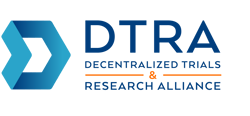Create DCT Site-specific Workflows
The purpose of the create DCT Site-specific workflows stop is to ensure that any changes to standard workflows are identified and any new workflows needed are created when DCT elements are used in trials.
Description
Clinical research sites establish standardized workflows to manage complex protocol requirements while maintaining quality, compliance, and patient safety throughout the trial lifecycle. These workflows encompass critical processes including patient screening and enrollment, informed consent, study visit execution, investigational product management, data collection, and regulatory documentation - all of which must be carefully coordinated across site staff, sponsors, and vendors.
In all trials, the details of exactly who is doing what are critically important. In a traditional trial, sponsors and CROs will confirm that the site has processes aligned to protocol needs as part of site selection. Typically the site defines the workflowhat fits best for their resources and and SOPs.
Some typical Clinical Trial Site Workflows include:
1. Patient Identification & Screening
2. Informed Consent Process
3. Study Visit Execution
- Visit scheduling
- Protocol procedures completion
- Vital signs/assessments
- Sample collection/processing
- Data collection/entry
- Query resolution
5. Documentation & Regulatory Compliance
DCT-specific Considerations/Inputs
The introduction of decentralized elements requires sites to adapt these established workflows to incorporate remote visits, home health coordination, and multiple technology platforms while ensuring consistent quality and compliance standards are maintained.
Because study visits include new technologies, vendors and locations, it’s highly recommended to fully define the workflow to be used at the site level for DCT adoption success.
Some of the additional considerations for site workflows when DCT elements include:
1. Technology Integration Points across DCT elements that will be used:
- eConsent platforms, ePRO/eCOA systems, Wearable device data streams, Remote monitoring platforms
- Home health visit coordination
- Direct-to-patient shipping systems
2. Modified Workflows for core study elements: - Remote consent processes
- Virtual visit coordination
- Home health visit scheduling
- Device troubleshooting
- Local lab coordination
- IP shipping/receipt verification
3. Data Flow Management using multiple data input, management and review platforms.
4. Patient Support Requirements - Technology training/support and device troubleshooting
- Visit coordination complexity
- Privacy/security considerations
5. Staff Training Needs - Multiple platform proficiency
- Remote visit management
- Technology troubleshooting
Description
DCT-specific Considerations/Inputs
Tools
Regulatory Documents
FDA/U.S.
Europe/EMA
Reference Documents
Tools
Regulatory Documents
FDA/U.S.
FDA Draft Guidance: Decentralized Clinical Trials for Drugs, Biological Products, and Devices
View